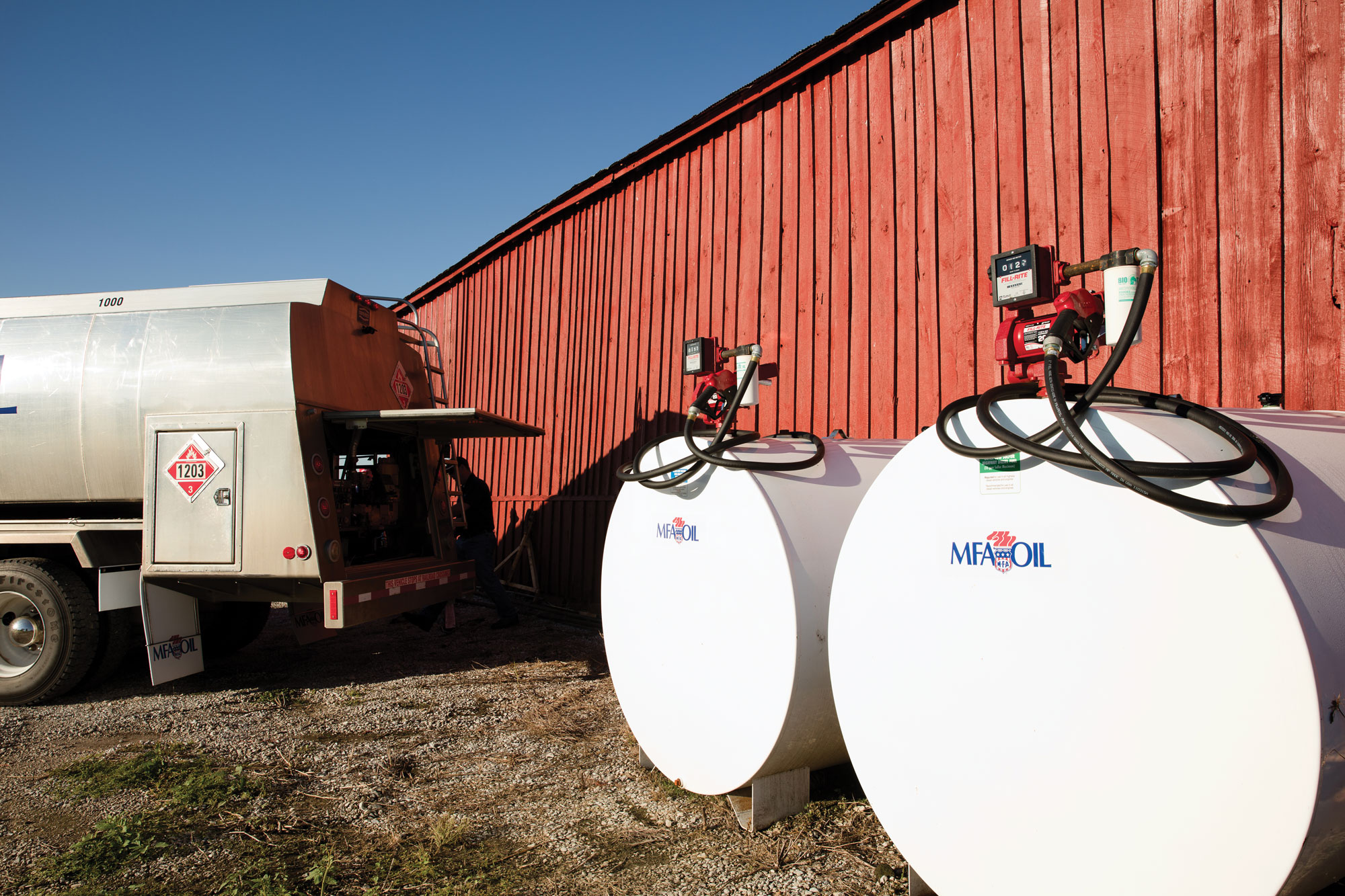
Proactive Tank Maintenance Key to Preserving Fuel Quality
November 15, 2018
Written By Adam Buckallew
Barry Oden knows his customers count on MFA Oil for high-quality fuel. The challenge he sees is helping them maintain that quality once it’s been delivered.
“I see the analysis of every fuel sample that customers in my district send in to our lab for testing and too many have sediment and debris contaminating the storage tank,” says Oden, who manages the cooperative’s East Central District. “That’s the case in four out of every five samples.”
Keeping fuel clean is paramount to preventing damage to today’s sophisticated fuel systems. When contaminants compromise fuel injector performance, it can lead to loss of power, bad fuel economy, costly engine damage and downtime.
In an effort to help customers better manage their fuel storage tanks, MFA Oil is launching a pilot program this fall to assess fuel quality at all delivery sites throughout Oden’s district. Company drivers, service technicians and plant managers will work together to ensure fuel filters are replaced regularly and test fuel tanks for sediment and water. Inspection slips will be left behind at each tank to verify examination and alert customers of any issues found.
“We want to promote a more proactive approach at the customer level to maintain fuel quality,” Oden says. “Building awareness and educating our customers on how to prevent potential problems is a big part of that, but we are also exploring a tank maintenance service program that could be rolled out to all customers.”
Oden says farmers and other heavy-duty equipment operators are well-acquainted with the importance of seasonal upkeep on farm implements and construction equipment, but he’s aware of only a handful of customers with a fuel tank maintenance program in place.
“Our fuels are formulated to deliver top-of-the-line performance, but the quality will degrade over time if it’s sitting in a dirty or neglected tank,” Oden says. “We want to partner with our customers to help them understand this and develop a scheduled tank care routine that prevents fuel quality problems from popping up. That’s the key to extending the longevity of your engines.”
MFA Oil recommends the following best practices to preserve fuel quality in storage tanks:
- Paint tanks white. Keeping water out of tanks is the number one way to protect fuel from degrading, and condensation is one of the most common ways water can accumulate. Painting tanks white keeps them cooler, which reduces the chances of condensation from forming when temperatures fluctuate. Cooler tank temperatures also reduce the rate at which fuel oxidizes and prevents light distallates in gasoline from evaporating in hot summer months.
- Establish drain intervals. All storage tanks should be drained at least twice a year of the water that naturally collects on the bottom due to condensation. Water contamination left unchecked will lead to rust and microbial growth.
- Change fuel filters. Filters have a limited life depending on the volume of contaminants they are catching. Plan to change them at least two to three times per year. Regular fuel filter replacement prevents sediment and other contaminants from building up inside fuel tanks on your equipment. MFA Oil recommends changing your filters at the same time you adjust your clocks for daylight savings time.
- Consider an air filter. If the tank is in a dusty environment, an intake/vent filter may be needed to prevent sediment from fouling the fuel. A vent filter can catch airborne particles and minimize the amount of dirt that can enter the fuel tank.
- Right-size the tank. If the contents of the tank are not being completely turned over at least two to three times per year, it is too large. Aim for a size that can handle complete fills because any open space at the top of the tank can result in condensation, rust and fuel contamination.
Customers who would like to have their fuel quality analyzed can contact the MFA Oil laboratory at 573-219-5750 for more information.

